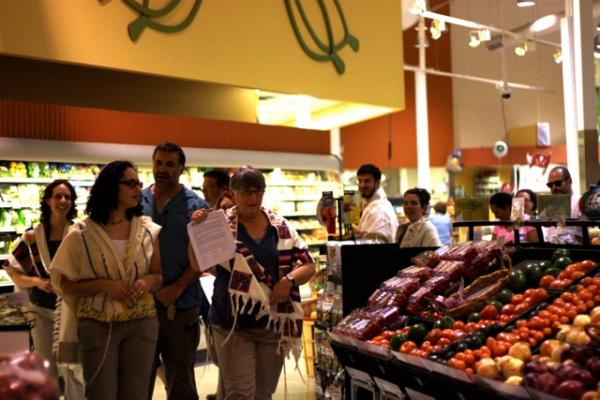Closer to home, one of the messages that many of us often hear is that there is slavery in the supply chains of the products that we buy every day: cotton, chocolate, produce. This can be paralyzing when we go to the mall or the grocery store. None of us want to purchase something that originates in an extreme human rights violation. But the solution cannot be simply to buy a different product. When we talk about labor trafficking, we must keep the focus on the worker who is enslaved rather than the product we consume.
As a rabbi, I know that is not my tomato or banana that is created in the image of God—it is the person who picked that product. Fighting for food justice means ensuring the human rights and wages of workers, and doing so in a way that places the needs, dignity, and expertise of the workers at the head of the table. This last piece is crucial: no one can tell us how best to solve human rights abuses in supply chains, including modern slavery, more than the workers who have the most at stake...
We must raise up the leadership of those most affected by forced labor and support their efforts to create new futures for themselves. Since 2011, T’ruah has taken more than 50 rabbis to Immokalee to learn from the CIW. The stories they hear—and the transformation they see—inspire them to go home and turn their congregations into more than just educated consumers. They become activists: they write letters to corporations urging them to join the Fair Food Program, stage protests, take Hebrew school students to meet with managers, write op-eds, and deliver sermons. Our #TomatoRabbis have become part of the larger movement of Fair Food activists, urging corporations to live up to their professed values and join the new day dawning in the Florida tomato industry that is the only proven slavery-prevention program in the U.S.
Read the Full Article

